
By Henry L. Liao

He reached the national conscience as early as the mid-sixties not only because of his good looks but also due to his awe-inspiring barrelling drives and never-say-die spirit during his collegiate basketball days with the University of the East Red Warriors.
Before long, he also dominated games in the Manila Industrial and Commercial Athletic Association (MICAA), the country’s premier industrial and commercial league in the late 1960s and early 1970s, and was a crowd-drawer that often drew oohs and aahs from Filipino hoop fans with his devil-may-care moves. His leadership skills were so pristine that it propelled him to a berth in the Philippine national team on a number of occasions at the peak of his distinguished roundball career.
A quintessential hustler, he did it all on both ends of the floor with his scoring, rebounding, assists, steals and signature DNA – rugged defense.
A quarter of a century since his playing retirement – including a record 23 seasons (1975-97) in the professional league Philippine Basketball Association – while also moonlighting as the head coach of his pro team, he remains a popular figure as ever. His niche in Philippine cage folklore is well deserved and preserved.
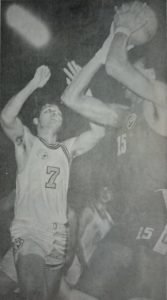
His name: Robert Vincent Salazar Jaworski, who turns a cool 75 on March 8.
Greatness came early for “Sonny” Jaworski, who earned the moniker “The Big J” for his big-time floor plays.
The son of a Polish father and a Filipino mother, the wide-bodied 6-foot-1 guard as a teenager was already making waves not only in the local cage scene but also on the international stage.
He steered the UE Red Warriors to three consecutive UAAP titles from 1965-67. The 1967 crown was shared with the University of Santo Tomas as the head coaches for both teams, UE’s Virgilio (Baby) Dalupan and UST’s Rogelio Serafico, refused to field in their respective fives to start the second half unless the other revealed his lineup first.
While still in college, the do-everything Jaworski, he with the unusually huge hand and feet, was already recruited to play for the tradition-steeped Yco Redshirts/Painters in the prestigious post-graduate, semi-pro MICAA circuit in 1967. One of his Yco teammates was the late Danny Florencio (who died on February 25, 2018 in California, USA), another blossoming star from UST whom he had crossed swords with in the UAAP.
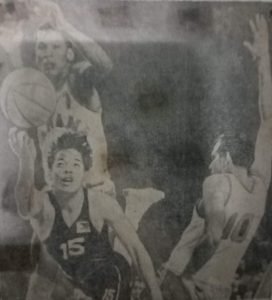
By then, Jaworski was gaining national attention as a member of the Philippine national team.
At age 20, Jaworski was chosen for the Philippine national team to the 1966 Asian Games in Bangkok, Thailand along with the spitfirish Florencio.
The duo would later team up again in the 1967 Asian Basketball Confederation (ABC) tournament (later to be called the FIBA Asia Championship and now known as the FIBA Asia Cup).
Before that international sojourn in September, Jaworski and Florencio, and another rookie Joseph Wilson, hooked up with the Painters under head coach Carlos (Caloy) Loyzaga, the legendary great who had called it quits as a player three years earlier in 1964.
In the 1967 National Senior (Open) Basketball tournament, which was touted as the most prestigious crown in the country at the time as it features all the top collegiate teams and commercial clubs, the Painters regained the crown they surrendered to their arch nemesis Ysmael Steel Admirals in 1961 following a record seven-year reign (1954-60) by beating the Yutivo Opels in the one-game finals at the Rizal Memorial Coliseum armed with a twice-to-beat advantage after beating the latter, 73-63, behind Jaworski’s team-best 18 points to sweep the four-team championship round. Subsequently, Yco routed Yutivo, 96-78, behind Jaworski’s 24 markers, to regain the crown. Ysmael Steel, which had won six consecutive titles (1961-66), was dethroned after losing to Yutivo, 74-64, and Yco, 67-65, in the championship round. The Admirals came into the third-place game against Puyat Steel, a 75-74 win, with their heads shaven, from Ysmael Steel coach Valentin (Tito) Eduque down to the players and even the water boy.
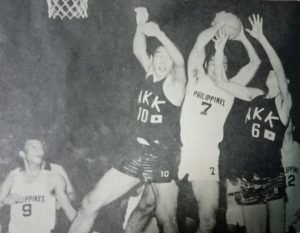
The Admirals later gained some revenge when they defeated the Painters in the MICAA finals, claiming their third straight title, before the team was disbanded.
Loyzaga was eventually selected to mentor the 1967 Philippine national team to the 1967 ABC tournament, a well-deserved post for Yco was the national champion.
That PH unit, which was dubbed “The Dirty Dozen,” whipped legendary great Shin Dong-pa and South Korea, 83-80, in the titular match as Florencio came off the bench to score the game’s final four points (a twinner and two free throws) to cement the Filipinos’ victory.
The Baguio City-born Jaworski only had a brief stint with Yco before transferring to the then-Lopez-owned Meralco Reddy Kilowatts franchise in the MICAA. (Florencio also briefly played for Yco before joining the famed Crispa-Floro franchise.) Under the stewardship of bench boss Lauro (The Fox) Mumar, Meralco copped the import-laced MICAA Open competitions in 1971.

Jaworski was a perennial national-team selection, representing the flag again during the 1968 Mexico Olympics, 1970 Bangkok Asian Games, 1971 Tokyo ABC tourney, 1973 Manila ABC festivities (where the Philippines bagged the gold medal over South Korea), 1974 Tehran Asian Games and the 1974 World Basketball Championship (which would be known as the FIBA Basketball World Cup starting in 2014 in Spain) in San Juan, Puerto Rico.
In 1973, following his reinstatement from a 13.5-month suspension by the Basketball Association of the Philippines (the national basketball federation recognized by the International Basketball Federation or the FIBA at the time) that was brought about by a hardcourt brawl involving Jaworski and the late Alberto (Big Boy) Reynoso against referees Jose Obias and Edilberto Cruz during a 1971 MICAA All-Filipino game between the Reddy Kilowatts and the eventual champion Crispa Redmanizers, Jaworski was picked to banner the newly-formed Komatsu Comets outfit (which was composed mostly of players from the disbanded Meralco team).
The team, which eventually was called the Toyota Comets, captured the MICAA Open title in their maiden campaign to become one of only six franchises in MICAA history to turn in the trick.
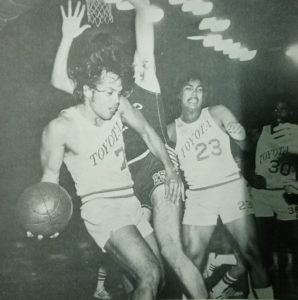
Jaworski and the Toyota Comets joined the PBA when Asia’s first pro league was established on April 9, 1975. In the PBA’s inaugural season, the Comets took the first two of the three-conference league and wound up second to Crispa in the third.
Jaworski won nine PBA conference championships with the Comets/Tamaraws before the Toyota franchise folded up after nine seasons (1975-83). He subsequently hooked up with the Gilbey’s Gin franchise in 1984 and then became its playing coach when the team changed its name to Ginebra San Miguel a year later.
In 1978, the Big J earned PBA MVP honors after the Tamaraws won two of the three conferences, including the All-Filipino. He averaged a career-high 20.2 points in 55 games on .517 (473-for-915) field shooting and collecting 10.2 rebounds, 8.2 assists and 1.8 steals in 39.4 minutes of service.
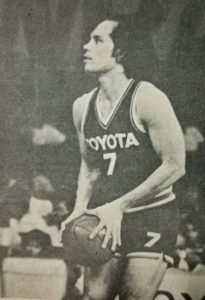
In 1990, the FIBA instituted its open-basketball policy, with no dividing line between amateurs and professionals. That year, the Philippines sent an all-pro (PBA) team to an international competition for the first time ever, doing so in the Beijing Asian Games, where Jaworski, the Nats’ head coach, steered the country to a silver-medal finish behind host China.
As its playing coach until 1998, Jaworski earned four title rings with the then-Palanca-owned Ginebra/Tondena/Anejo Rhum 65/Gordon’s Gin franchise – one All-Filipino conference (1988 Anejo Rhum 65) and three import-laced conferences (1986 Ginebra, 1991 Ginebra and 1997 Gordon’s Gin).
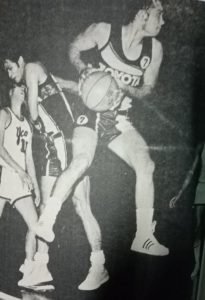
In 23 PBA seasons (Jaworski did not suit up in 1998 as he was preparing for his political candidacy although he remained as Ginebra’s bench tactician), the Big J finished with career averages of 12.3 points, 5.6 rebounds, 6.1 assists and 1.0 steals in 958 games.
To date, Jaworski remains on the top 10 all-time PBA charts in five categories. He is No. 1 in total assists (5,825), No. 3 in games played (958), No. 5 in minutes played (28,915), No. 7 in rebounds (5,367) and No. 9 in scoring (11,760).
Jaworski detached himself from the local scene in 1998 to run for one of the 12 Philippine Senate berths at stake during that year’s national elections. He ranked No. 8 overall, receiving 8,968,616 votes (or 30.6 percent of the votes cast) to gain a six-year term. (His Toyota buddy, current interim Philippine Sports Commission chair Ramon Fernandez, tried his luck in the 1995 Senate polls but failed to make it to the Magic 12 at No. 18.)
Until today, Jaworski, who was inducted into the PBA Hall of Fame in 2005 and named to the list of the 40 greatest players in PBA history in 2015, occasionally watches PBA games that feature Barangay Ginebra but he has so far declined to return to the pro league in any capacity.
To his detractors, Jaworski might have been a polarizing figure in Philippine basketball annals during his heyday. But love him or hate him, he is one of the legendary athletes that the country has ever produced.
Happy birthday, the Big J!

***
SHORTS – In his lone Olympic stint in Mexico City in 1968, Robert Jaworski was one of three players to average in double-figure scores for the Philippines in its’ 13th-place finish (out of 16 countries) with a 3-6 record.
Adriano Papa Jr. topped the Filipinos with a 15-point clip in eight appearances (he missed the game vs. Yugoslavia.) Danilo Florencio ranked second with an average of 11.2 points while Jaworski was third at 10.7 ppg.
Jaworski tallied four points vs. Italy (91-66 loss), 12 vs. Spain (108-79 loss), 12 (5-10 FGA in 21 minutes) vs. the eventual gold medalist United States (96-75 loss), 15 (6-8 FGA) vs. Panama (95-92 loss), five vs. Puerto Rico (89-65 loss), 12 vs. Senegal (80-68 win), and 16 vs. Yugoslavia (89-68 loss) in the elimination phase of two groups that were divided into eight teams each. (In the current format, only 12 teams are qualified to play in the Olympics.)
In the knockout classification round for 13th to 16th places, the Big J again netted 16 points against Morocco (86-57 win) and four in a morale-boosting 66-63 decision over South Korea to claim the 13th position. It was a rematch of the 1967 ABC finals, where our boys also whipped the host Sokors, 83-80, to bag the title.
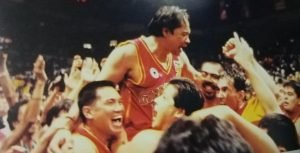
The scoring averages of the other members of the Philippine team to the Mexico Olympiad are as follows: Alfonso Marquez (7.4 ppg), Renato (Sonny) Reyes (6.6 in eight games), Joaquin Rojas Jr. (6.0), team captain Alberto (Big Boy) Reynoso (4.5), Rogelio Melencio (4.0), Jaime Mariano (3.7), Orlando Bauzon (3.4), Elias Tolentino Jr. (3.1) and Edgardo Ocampo (2.8).
Freddie Webb and Roehl Nadurata were the alternates on the team coached by Carlos (Caloy) Loyzaga.
- Luka Doncic tops fans but trails peers in NBA All-Star voting shocker - January 22, 2026
- 2026 NBA All-Star Game set for Intuit Dome with three-team format - January 22, 2026
- LeBron James’ limited availability puts All-Star hopes in question - January 22, 2026



![Mary Joy Tabal and Lieutenant Junior Grade Hector Dan Jimenez [photo credit: John Velez]](https://sportsbytes.com.ph/wp-content/uploads/2021/01/138608872_4051559628188386_6227047821576022723_o.jpg)